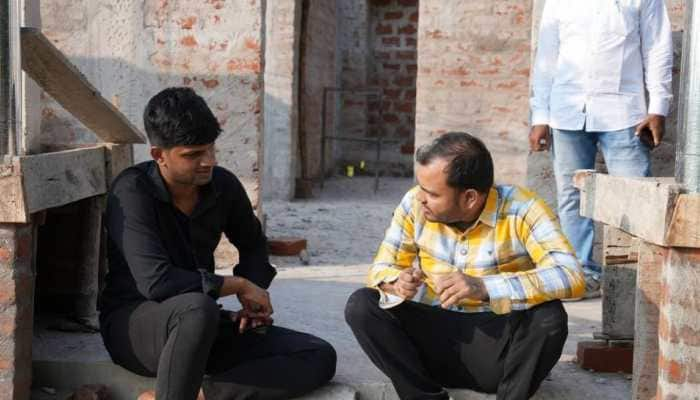Rural children in India have better immunization rates: Report
Contrary to earlier studies, children in rural India have higher vaccination rates than those in cities and Hindu kids are more likely to get their shots than Muslims, researchers from a leading American university have said.
Trending Photos
)
Washington: Contrary to earlier studies, children in rural India have higher vaccination rates than those in cities and Hindu kids are more likely to get their shots than Muslims, researchers from a leading American university have said.
Said to be first of its kind of study, the report released by University of Michigan compares vaccination rates across religious groups in India.
It's also significant because the findings that rural kids are better vaccinated are contrary to earlier studies.
The research by U-M's School of Public Health found that urban children between the ages of 1-3 years have an 80 per cent chance of not being vaccinated when compared to children in rural areas, the university said in a release.
"Urban areas have pockets of slums where health care services are not reaching," said lead author Nijika Shrivastwa, who recently finished her doctorate in epidemiology at the University of Michigan.
People in rural areas, she added, often have access to health care in government hospitals that deliver free vaccinations.
Community health workers and public health centers have also done a good job of spreading vaccination message in villages, she said.
Although India is a leading producer and exporter of vaccines, the country is home to nearly a third of the world's unimmunized children.
Only 57 per cent of children younger than 3 are fully vaccinated, the university said in a statement.
"This study highlights the need to develop a much better understanding of the social factors that influence childhood vaccination and the role that infrequently examined issues ? such as caste, religion, sex, residence and poverty ? play in determining whether or not a child receives potentially life-saving immunizations in India," said Dr. Matthew Boulton, senior author of the study and senior associate dean for global public health at U-M.
The study broke down the vaccination rate based on residence, religion, wealth, gender, maternal age and education. The researchers found that the vaccination rate also differs considerably based on religion.
Children from Muslim families have significantly poorer vaccination outcomes, while Sikh children are better immunized when compared to Hindu children.
Sikh children are 14 per cent more likely to be better vaccinated and Muslim kids are 122 per cent more likely not to be vaccinated, the report said.
Shrivastwa explained that previous studies on vaccination coverage categorized religion as Hindu or non-Hindu, and this is the first time the non-Hindu religions were sorted further.
"Even after controlling for wealth, maternal education, household income and location, there are huge differences in the immunization rate," she said.
The study looked at the vaccination rate of about 108,000 children under 3 years old in the District Level Household and Facility survey data from 2008, a nationally representative sample.
DLHS was started in 1997 to assess government health care facilities and people's perceptions about the quality of services.
The study, "Predictors of vaccination in India for children aged 12-36 months," is jointly published in a special supplement in Vaccine and the American Journal of Preventive Medicine.
Other U-M authors of the study are Brenda Gillespie and Giselle Kolenic of the Center for Statistical Consultation and Research and James Lepkowski of the Institute of Social Research.
Stay informed on all the latest news, real-time breaking news updates, and follow all the important headlines in india news and world News on Zee News.
Live Tv







)
)
)
)
)
)
)
)
)
)
